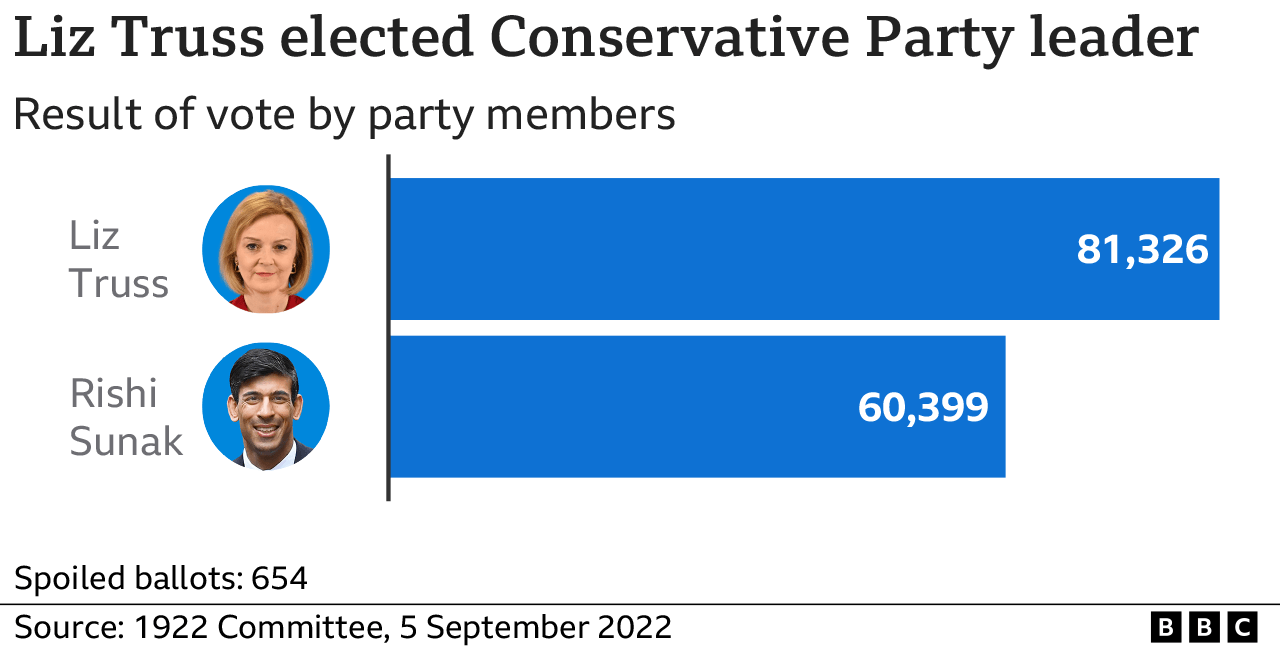How Liz Truss won the Conservative leadership race
- Published
Liz Truss has won the contest to replace Boris Johnson as Conservative Party leader and prime minister.
The foreign secretary beat former Chancellor Rishi Sunak in a ballot of Conservative members - winning by about 21,000 votes.

Ms Truss set out some of her policies during the leadership campaign and has promised to hit the ground running. Here are some of the key pledges and plans she outlined.
Who chose the winner?
The Conservative Party said 172,000 people were eligible to vote in the final stage of the contest, or about 0.3% of the total UK electorate, and that about 142,000 voted.
Research suggests that, like members of the other major parties, Tories tend to be older, more middle class and more white than the rest of the population.

Who did the final two beat?
Mr Sunak and Ms Truss reached the last round of the contest after a series of votes by Tory MPs reduced the field of contenders from eight to two.
The former chancellor had been in the lead in every round of voting and ended with 137 votes in the fifth and final ballot, but Ms Truss overtook Penny Mordaunt only in the final round to secure second place with 113 votes.

What was the leadership selection process?
The timetable for the Tory leadership race was confirmed by Sir Graham Brady, chairman of the 1922 Committee of the party's backbench MPs after Mr Johnson announced he would be stepping down.
People putting themselves forward had to secure the backing of 20 Tory MPs - a higher threshold than in previous contests. Former Health Secretary Sajid Javid, Transport Secretary Grant Shapps and Foreign Office minister Rehman Chishti, who had all announced they planned to run, failed to do so and dropped out.
Former Foreign Secretary Jeremy Hunt and Chancellor Nadhim Zahawi did not get the 30 votes from Tory MPs needed to progress from the first round of voting.
Attorney General Suella Braverman was eliminated after getting the fewest votes in the second round, while Tom Tugendhat and Kemi Badenoch were eliminated in the third and fourth rounds respectively.
